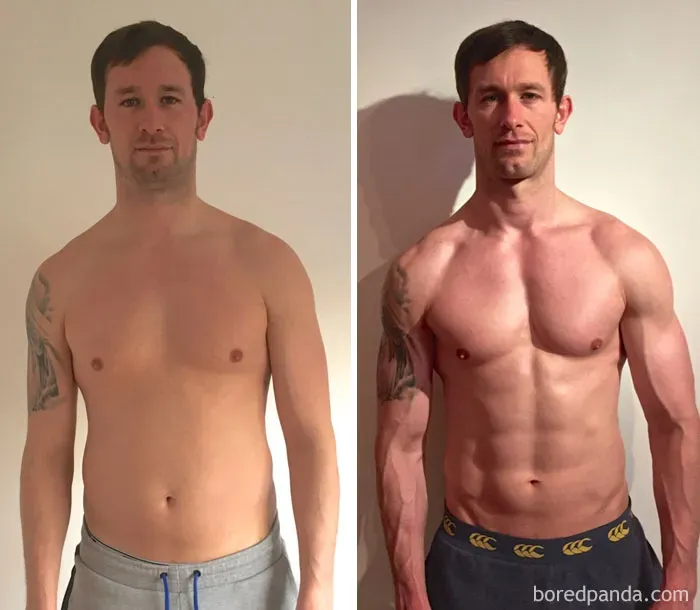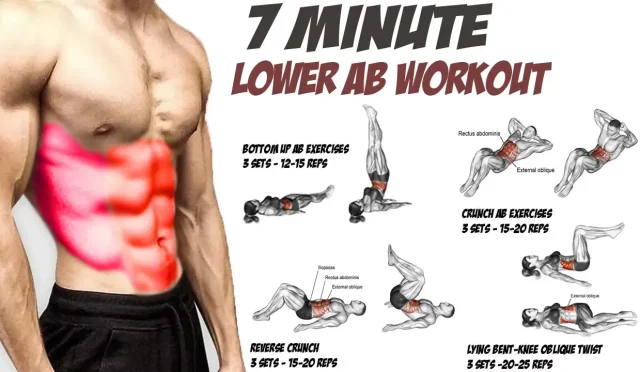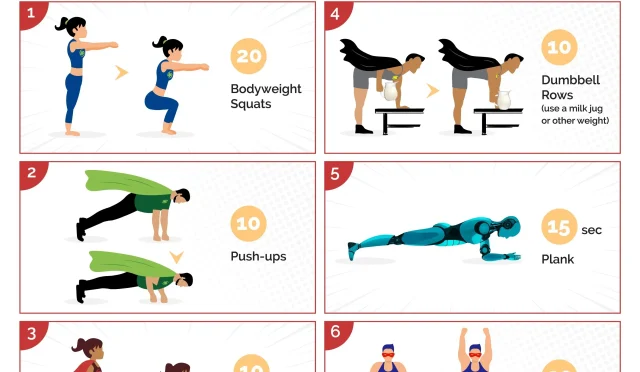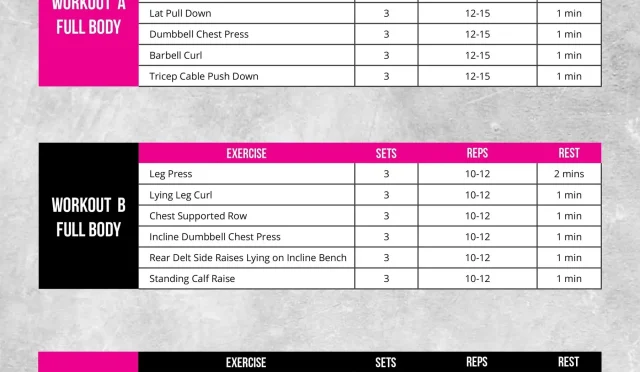Fitness Transformation: From Gym Novice to Guru
Fitness transformation is not just a goal; it’s a journey that can ignite newfound confidence and vitality. For many gym novices, the prospect of starting a fitness routine can feel overwhelming, but with the right mindset and tools, anyone can achieve their fitness goals. A structured workout plan tailored to your needs, alongside proper nutrition and recovery, can create a solid foundation for lasting change. Engaging with the fitness community can provide invaluable support and motivation on this path, helping you stay committed to your objectives. Together, we’ll explore the essential steps to transition from a gym novice to a fitness guru, making your transformation both exciting and attainable.
The journey to becoming fit often begins with a personal commitment to change, paving the way for a lifestyle overhaul. Many individuals start off as beginners in their physical fitness endeavors, yet with dedication and appropriate guidance, they can evolve into seasoned fitness enthusiasts. Setting achievable benchmarks and following a comprehensive training regimen is crucial in realizing these ambitions. Coupled with a focus on diet and recovery, these aspects can significantly impact one’s overall well-being. Additionally, connecting with a supportive community enhances motivation, making the pursuit of fitness not just a personal goal, but a shared experience.
Essential Steps to Fitness Transformation
Transforming your fitness journey requires a strategic approach that encompasses various integral steps. One must start with a clear understanding of personal fitness objectives, which may range from losing weight to building muscle or enhancing endurance. By focusing on quantifiable goals — adopting the SMART (Specific, Measurable, Achievable, Relevant, Time-bound) criteria — individuals can lay a solid foundation for their transformation. This meticulous goal-setting process helps create a roadmap, ensuring that each step along the way contributes towards achieving ultimate fitness aspirations.
In addition, it’s crucial to recognize that the path to fitness is iterative. Regular reassessment of goals can further enhance motivation and ensure that progress is being made. This could involve setting new targets as old ones are achieved, which not only keeps the journey exciting but also fosters a sense of accomplishment. Remember, every fitness transformation is unique and requires personalized strategies that suit your individual lifestyle, physical capabilities, and preferences.
Crafting an Effective Structured Workout Plan
Once you have your fitness goals clearly defined, the next pivotal step is to develop a structured workout plan that aligns with these objectives. This plan should identify the various forms of exercise that will be utilized, such as strength training, cardio, and flexibility workouts. Incorporating a balanced arrangement—for instance, committing to strength training two to three times per week alongside 150 minutes of moderate-intensity cardio—can create a comprehensive approach that caters to all aspects of fitness development.
Moreover, gym novices should focus on gradual progression within their routine, ensuring that they continuously challenge themselves while avoiding injury. An effective workout plan not only leads to immediate results but also establishes a long-term commitment to fitness. To further motivate oneself, consider including activities that you genuinely enjoy; this will increase adherence to the plan and make workouts something to look forward to rather than a chore.
The Importance of Consistency in Your Fitness Journey
Consistency stands out as a cornerstone of success in any fitness endeavor. For those just starting out at the gym, it is essential to forge a workout routine that is not only sustainable but enjoyable. Embracing manageable workouts in the beginning can help prevent burnout and injury, which are common pitfalls among beginners. The adage ‘consistency beats intensity’ encapsulates this philosophy: gradual and steady progress trumps sporadic, high-intensity workouts that are hard to maintain over time.
In establishing a consistent schedule, individuals should treat their exercise sessions as non-negotiable appointments. This discipline cultivates healthy habits that are pivotal for long-term fitness success. Recognizing and celebrating small victories can also reinforce commitment; each workout completed is a step closer to your fitness goals, fueling the motivation needed to maintain this consistency.
Nutrition and Recovery: The Unsung Heroes of Fitness
While workout routines are crucial, proper nutrition and recovery are pivotal to achieving fitness goals as well. Nutrition acts as the fuel for your body; consuming a balanced diet rich in whole foods and appropriate macronutrients is vital for optimizing performance. Lean proteins, healthy fats, and adequate hydration are fundamental to ensuring that the body has the energy it needs to perform well and recover efficiently post-workout.
Moreover, recovery is equally important and can significantly influence progress. Adequate rest days and focusing on quality sleep will help muscles repair and grow, preventing the dreaded plateau in results. Integrating nutrition education into your fitness journey—possibly through consultations with nutritionists—can further enhance your understanding of how food choices align with your fitness goals, solidifying the relationship between diet and exercise.
Utilizing Technology to Track Progress
In our digital age, leveraging technology for tracking fitness progress can provide significant advantages. Numerous fitness apps and wearable devices exist to help users monitor their workouts, calorie intake, and overall progress. By utilizing these tools, individuals can establish a clearer understanding of their adherence to their structured workout plans and nutrition goals. Regularly logging activity and meals can lead to heightened accountability, ultimately driving motivation and staying true to fitness commitments.
Furthermore, the act of celebrating small milestones—like increased weights, longer cardio sessions, or even daily exercise streaks—can bolster positive reinforcement, cultivating a sense of achievement and sustained motivation. Monitoring progress not only highlights what is working but can also reveal areas needing adjustment, ensuring that the workout regimen continues to challenge and cater to growing fitness levels.
The Role of Community in Your Fitness Success
Engaging with a community of like-minded fitness enthusiasts can provide a massive boost to your journey from gym novice to fitness guru. The social aspect of working out can dramatically elevate motivation levels as individuals encourage and support one another in their fitness pursuits. Joining local classes, participating in online forums, or finding a workout buddy can ensure that exercise becomes a more enjoyable and fulfilling part of one’s routine.
Research shows that being part of a fitness community enhances accountability and will lead to improved adherence to fitness programs. The relationships cultivated in such environments can also provide emotional support, valuable tips, and shared experiences that foster growth and learning. This communal engagement is not only beneficial for staying committed but can also create friendships that enrich your overall fitness journey.
Adjusting Your Workout Plan for Optimal Results
As your fitness journey progresses and you begin to see results, it’s essential to adapt your workout plan accordingly. Sticking to the same regimen may lead to stagnation, commonly known as a plateau. Therefore, gradually changing elements of your program—whether that’s increasing weights, trying different exercises, or adjusting the volume and intensity—will help maintain steady progress towards your fitness goals.
Moreover, regularly evaluating your performance and outcomes can provide insights into what aspects of your workout are effective and what may require tweaking. Embracing flexibility in your workout approach ensures that your training remains aligned with your evolving fitness levels and aspirations, making each step forward an opportunity for further growth.
Finding Your Unique Fitness Motivation
Every individual’s fitness journey relies, in part, on personal motivation. Recognizing what inspires and drives you to pursue your fitness goals can significantly enhance your commitment. This could be anything from the desire to improve health, achieve a certain aesthetic, or simply enjoy the process of getting fit. Identifying your intrinsic motivations will not only keep you focused but also increase the likelihood of forging lasting habits that extend beyond temporary commitments.
Furthermore, sharing your motivations and aspirations within a community can create a supportive environment that amplifies accountability and encourages shared experiences. Engaging with others who have similar goals or have faced similar challenges can fortify your resolve and maintain inspiration throughout your fitness transformation.
Transforming Your Mindset Toward Fitness
Adopting a positive mindset is crucial when embarking on a fitness journey. Many gym novices find success not just through physical training, but by reshaping their perspective on fitness itself. Viewing workouts as opportunities for growth rather than obligations can shift your approach and enhance your enjoyment of the process. Acknowledging that setbacks are part of the journey allows individuals to cultivate resilience and maintain motivation, even when facing challenges.
Moreover, surrounding yourself with positivity—through inspirational content, motivational quotes, or supportive friends—can reinforce a healthy mindset. As your transformation progresses, this mental nurturing becomes just as important as the physical aspects, ensuring that both body and mind are aligned towards achieving your ultimate fitness goals.
Frequently Asked Questions
What are the first steps for a gym novice starting their fitness transformation?
For gym novices beginning their fitness transformation, the first steps include setting realistic fitness goals, creating a structured workout plan, and prioritizing consistency. This foundation helps to clarify objectives and build effective habits that support their fitness journey.
How do I create a structured workout plan for my fitness transformation?
When creating a structured workout plan for your fitness transformation, incorporate a mix of strength training, cardio, and flexibility exercises. Aim for at least 2-3 strength sessions per week, 150 minutes of cardio, and regular stretching to enhance mobility and prevent injuries.
Why is consistency important in achieving fitness goals?
Consistency is crucial in realizing fitness goals because it fosters sustainable habits and allows for gradual improvement. Sticking to a workout schedule helps gym novices build discipline and see continuous progress in their fitness transformation.
What role does nutrition play in fitness transformation?
Nutrition plays a vital role in fitness transformation by providing the necessary fuel for workouts and recovery. A balanced diet supporting your structured workout plan is essential for optimal performance and achieving your fitness goals.
How can I effectively track my fitness progress?
To effectively track your fitness progress, use fitness apps, journals, or wearable devices to log workouts, nutrition, and measurements. This tracking can motivate you and help you make necessary adjustments to your structured workout plan.
What type of community support is beneficial during a fitness transformation?
Having community support during a fitness transformation can include joining fitness classes, finding workout partners, or engaging in online forums. Surrounding yourself with a fitness community can boost motivation and enhance accountability.
How can a gym novice stay motivated during their fitness transformation?
A gym novice can stay motivated by setting realistic goals, celebrating small victories, and involving themselves with a supportive fitness community. These strategies can keep them focused and engaged throughout their fitness transformation journey.
What are the best practices for recovery during a fitness transformation?
Best practices for recovery during a fitness transformation include getting adequate sleep, staying hydrated, and incorporating rest days into your structured workout plan. Proper recovery enhances muscle repair and improves overall performance.
What are common fitness goals for beginners in their transformation journey?
Common fitness goals for beginners include weight loss, muscle gain, improving endurance, and enhancing overall health. Setting specific, measurable goals helps gym novices focus their efforts during their fitness transformation.
How often should I adjust my workout plan during a fitness transformation?
It’s advisable to review and adjust your workout plan every 4-6 weeks during your fitness transformation. This adjustment ensures continued progress and helps to prevent workout plateaus by introducing new challenges and intensities.
| Key Element | Description |
|---|---|
| 1. Setting Realistic Goals | Establish clear, specific, and attainable fitness goals using the SMART criteria. Example: “Lose 10 pounds in 3 months.” |
| 2. Creating a Structured Workout Plan | Develop a balanced routine including strength training, cardio, and flexibility exercises based on your goals. |
| 3. Staying Consistent | Maintain a regular workout schedule to build sustainable habits instead of pushing yourself to extremes. |
| 4. Nutrition and Recovery | Focus on a balanced diet and allow adequate recovery to support performance and muscle repair. |
| 5. Tracking Progress and Adjusting | Monitor your fitness journey with apps or journals, celebrating milestones to maintain motivation. |
| 6. Community and Support | Engage with like-minded individuals through classes or forums for enhanced motivation and accountability. |
Summary
Fitness transformation is not just a goal but a journey that involves various key elements to achieve success. By setting realistic goals, creating structured workout plans, maintaining consistency, understanding nutrition and recovery, tracking progress, and engaging with community support, anyone can transition from being a gym novice to a fitness guru. Each step taken is a vital part of the process; thus, committing to these principles will ultimately lead to substantial improvements in overall fitness and well-being. Stay focused and patient, as these gradual transformations will manifest over time.
#FitnessTransformation #FromNoviceToGuru #WorkoutJourney #BodyGoals #FitnessSuccess








